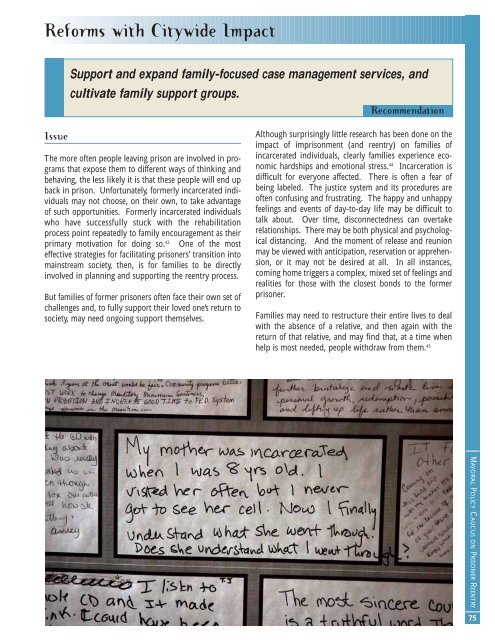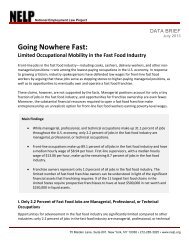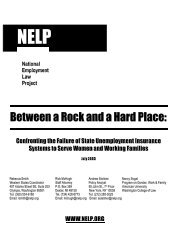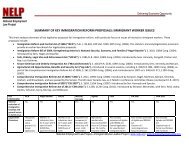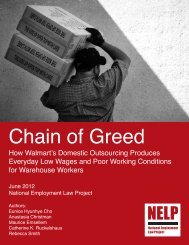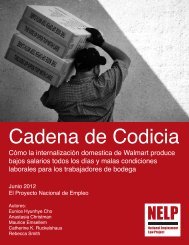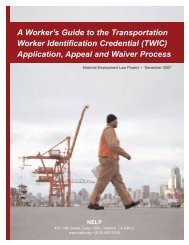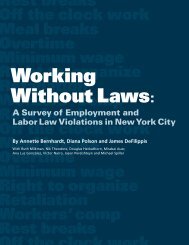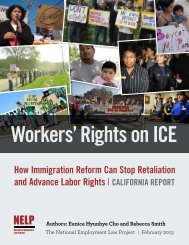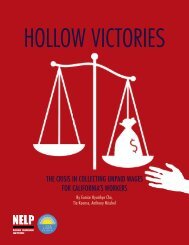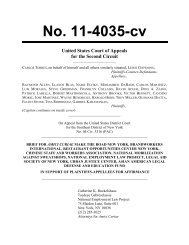Rebuilding Lives. Strengthening Communities.
Rebuilding Lives. Strengthening Communities.
Rebuilding Lives. Strengthening Communities.
Create successful ePaper yourself
Turn your PDF publications into a flip-book with our unique Google optimized e-Paper software.
Reforms with Citywide Impact<br />
Support and expand family-focused case management services, and<br />
cultivate family support groups.<br />
Recommendation<br />
Issue<br />
The more often people leaving prison are involved in programs<br />
that expose them to different ways of thinking and<br />
behaving, the less likely it is that these people will end up<br />
back in prison. Unfortunately, formerly incarcerated individuals<br />
may not choose, on their own, to take advantage<br />
of such opportunities. Formerly incarcerated individuals<br />
who have successfully stuck with the rehabilitation<br />
process point repeatedly to family encouragement as their<br />
primary motivation for doing so. 43 One of the most<br />
effective strategies for facilitating prisoners’ transition into<br />
mainstream society, then, is for families to be directly<br />
involved in planning and supporting the reentry process.<br />
But families of former prisoners often face their own set of<br />
challenges and, to fully support their loved one’s return to<br />
society, may need ongoing support themselves.<br />
Although surprisingly little research has been done on the<br />
impact of imprisonment (and reentry) on families of<br />
incarcerated individuals, clearly families experience economic<br />
hardships and emotional stress. 44 Incarceration is<br />
difficult for everyone affected. There is often a fear of<br />
being labeled. The justice system and its procedures are<br />
often confusing and frustrating. The happy and unhappy<br />
feelings and events of day-to-day life may be difficult to<br />
talk about. Over time, disconnectedness can overtake<br />
relationships. There may be both physical and psychological<br />
distancing. And the moment of release and reunion<br />
may be viewed with anticipation, reservation or apprehension,<br />
or it may not be desired at all. In all instances,<br />
coming home triggers a complex, mixed set of feelings and<br />
realities for those with the closest bonds to the former<br />
prisoner.<br />
Families may need to restructure their entire lives to deal<br />
with the absence of a relative, and then again with the<br />
return of that relative, and may find that, at a time when<br />
help is most needed, people withdraw from them. 45<br />
MAYORAL POLICY CAUCUS ON PRISONER REENTRY<br />
75


